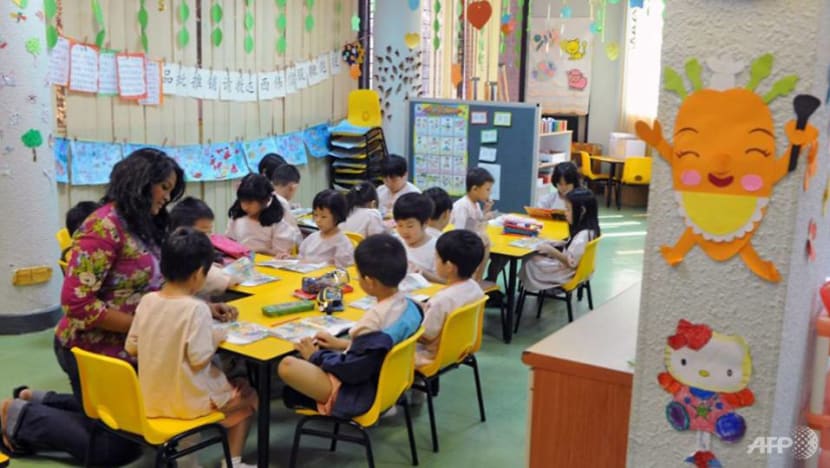Commentary: Must we choose between being a parent or employee when kids fall sick?
When I became a mother, asking to take childcare leave came with a pang of guilt and fear, says Sher-li Torrey.

(Photo: Freepik/lifeforstock)
SINGAPORE: “My child is sick, can I take a day off?” can be simple but dreaded words.
Not only by the manager who now needs to find a cover, but especially by the working parents, who – on top of dealing with a fussy patient – worries if we’ve taken a day off one too many times, creating a poor impression of our reliability and commitment to the job.
It seems a perfectly reasonable request, in today’s society where it’s common to have two working parents with young children.
Yet, when I first became a mother, I couldn’t help but feel a pang of guilt and fear each time I needed to bring my baby to see the doctor.
What if my boss felt I was away too often? What if my small team of five was frustrated at having to cover my duties yet again?
Some of us might even have heard, pre-pandemic, of friends giving their kids a dose of allergy medicine to suppress the morning sniffles, bundling them off to preschool and crossing fingers there won’t be a call to pick them up in the middle of the day.
Worse still for parents who have heeded the national call to have more children – if one falls ill, you can be sure the rest aren’t far behind.
WORKING PARENTS’ PRE-COVID DILEMMA
It isn’t that parents don’t understand the need to keep their kids away to prevent the spread of illnesses. But when a fever or cough can take days to resolve, parents are caught in a dilemma - with only six days of childcare leave and our own pressing work deadlines.

When I enrolled my firstborn in childcare, the first few months saw the baby adjusting to the new environment and being sick fairly often.
That meant many last-minute, early morning calls to my manager, requesting a day off. This constant tension between motherhood duties and a fear of being penalised for having less face-time at work led me to seek more flexible work arrangements.
But this was about 10 years ago. Even though my supervisor and colleagues were supportive, the organisation’s policies were strict – work started at a fixed time and no work-from-home arrangements were allowed. The only option was to take childcare leave.
Before COVID-19 measures forcibly transformed the way we work, many supervisors equated job dedication to visibility in the office and occasionally questioned the glaringly empty cubicle.
I was constantly exhausted, finding ways to balance precious time, energy and days of leave, especially when my child fell sick near crunch time for important projects.
It’s estimated that each young child will have six to eight colds a year. Imagine how many off days we’d need with two or more kids?
That’s when we realise parents’ worries about asking for time off and adding to the burden of our already-stretched teammates are all too real.
JUGGLING WORK AND SICK CHILDREN AMID COVID-19
When COVID-19 made work-from-home arrangements the default for those who could, it also threw us more balls to juggle when our hands were already full.
Many of us found ourselves incessantly code-switching between being a caring parent and a productive employee. When home-based learning was rolled out, we adjusted to our new “work-schoolday”.
It was a terribly stressful time. One mother I know created a family timetable, with parents’ and childrens’ schedules side by side, to literally get everyone on the same page. Many parents found, or at least tried, ways to organise the days.
One of my kids took her Primary School Leaving Examination (PSLE) last year, and I was conducting training workshops on top of my usual work duties. So, we drew up a timetable, trying to impose structure for very chaotic days.

It worked for a while – until the Wi-Fi in the house suddenly stopped working and none of us could follow our carefully plotted day.
As the number of COVID-19 cases started climbing exponentially, I heard of more parents and children having to serve Quarantine Orders every day. Many were also thrown into a frenzy if their preschools were suddenly closed or reported several cases, leading them to consider keeping their kids at home instead.
During that period, I recall many frantic WhatsApp messages from fellow parents, especially those scheduled to return to the office after work-from-home was announced to no longer be the default from Aug 19.
Many had to request for a leave of absence, drawing on childcare leave or annual leave, or revert to a work-from-home arrangement to care for their child.
Another mother I knew was issued two consecutive quarantine orders – one child after the other. At the height of the situation, I had more than 10 personal contacts who accompanied their children at the hospital or their quarantine facility.
REMOTE WORKING STILL A SILVER LINING FOR WORKING MUMS AND DADS
But there is some good to be found for all that COVID-19 has upended in our lives.
Employers and managers have become far more open to accepting remote work as a viable and desired arrangement for employees whose roles allow it.
It means we don’t always need a whole day off, depending on how sick the child is. In between the child’s periods of rest, we can still work effectively as long as goals are clearly defined and the employee is committed to his job duties.
In October, Minister in the Prime Minister’s Office Indranee Rajah said in Parliament it will be “difficult” to extend current childcare leave entitlements for parents to cover all days of their child’s home-based learning.
Indeed, increasing childcare leave days is not a simple solution, especially as Singapore gradually moves to living with endemic COVID-19 with self-testing and home recovery for mild cases, as well as more frequent home-based learning throughout the year as part of Blended Learning.
A more fluid work arrangement can better ease the burden of working parents.
It gives us one less hoop to jump through in more scenarios, such as when the kids are sick or potentially exposed to illnesses, such as COVID-19, Hand, Foot and Mouth Disease, norovirus or other common germs.
It’s a win-win situation for working parents to care for our little ones while keeping precious childcare leave for pressing bouts of illness and not become a burden on our colleagues and employers, and for companies to remain attractive as supportive employers.
The constant tension of being the best caregiver to our kids and effective contributors at work is very real.
COVID-19 has made things more challenging, but the last 21 months have proven that working parents can navigate both roles. All we need is some empathy and support.
Sher-li Torrey is founder of Mums@Work, a portal that supports working mothers in Singapore.


















